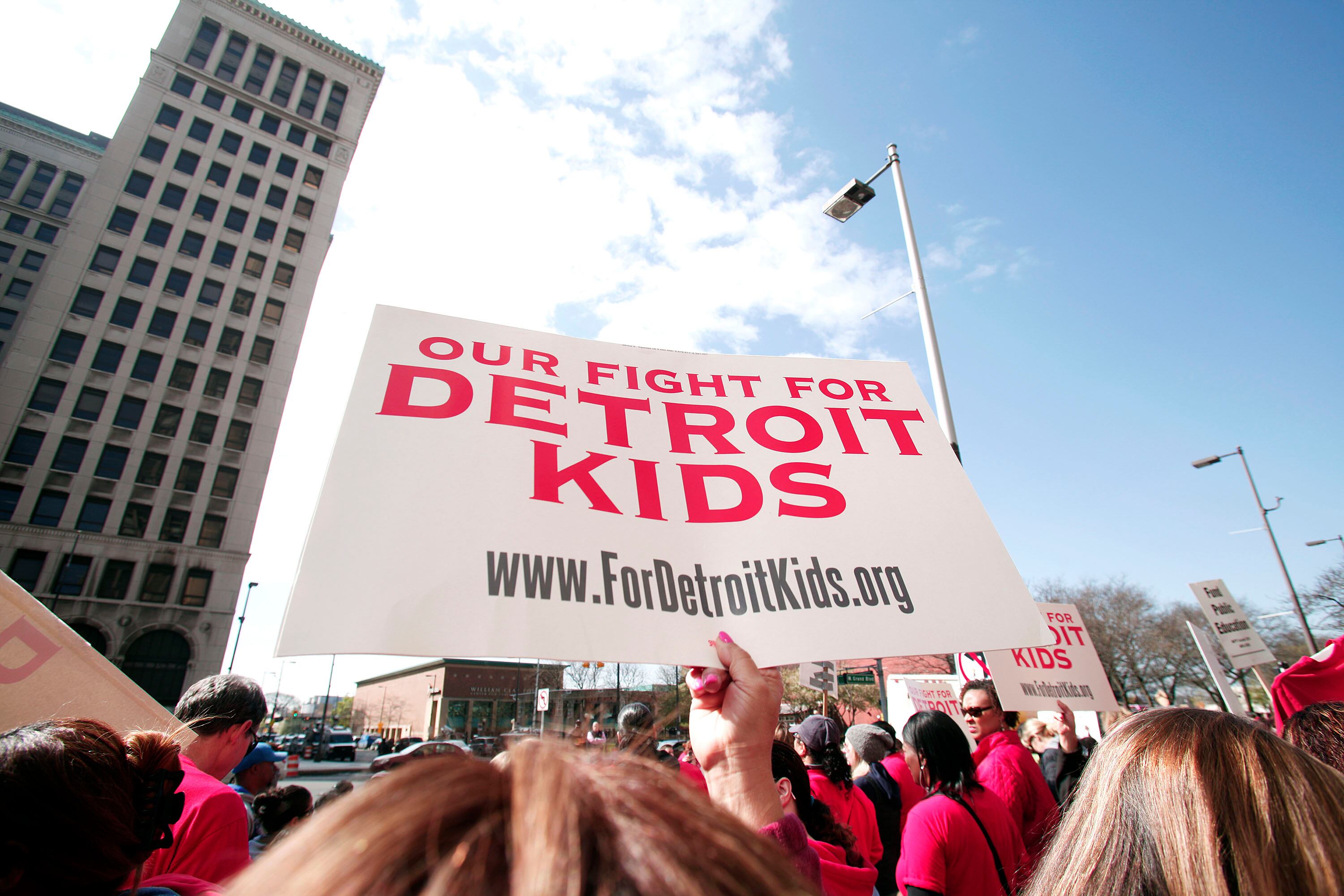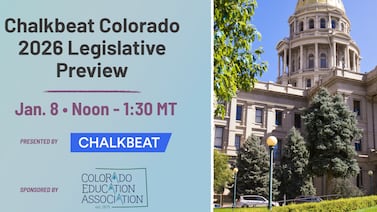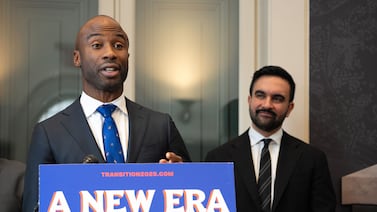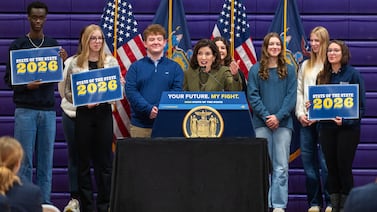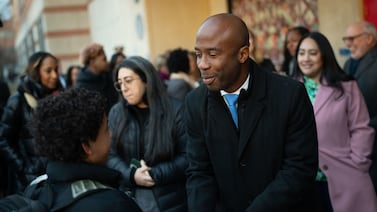The decision was groundbreaking: students have a right to literacy, a federal appeals court ruled last month, prompted by the dire performance and the sometimes horrific conditions of Detroit’s public schools.
But it wasn’t clear then whether that decision would be quickly appealed and overturned by the U.S. Supreme Court. On Thursday, there was an answer: Michigan officials settled the case.
The ruling directly applies to four states, and it could prompt litigation and policy change there and elsewhere. Other education court rulings — for instance, those involving school funding and desegregation — have resulted in real changes that, research later found, meant better results for students.
At the same time, the precedent is both limited and fragile. It sets a low bar for educational quality, and the conservative-learning Supreme Court could, in another case, reject a federal right to education. What’s clear: this issue will be worth watching for years to come.
“It is a momentous decision,” said Justin Driver, a Yale Law professor whose recent book on education law, “The Schoolhouse Gate,” was cited in the Detroit case.
Chalkbeat asked Driver to explain the implications of the Detroit decision, in what ways the Supreme Court still looms in the background, and how the coronavirus might affect how these kinds of cases are resolved.
This interview has been lightly edited for clarity and length.
This ‘right to read’ case is about Detroit. But why might it be a big deal from a national perspective?
In light of the compelling claims of the woeful underperformance of Detroit schools, Judge Clay recognized a fundamental right to a “basic minimum education,” meaning one that provides access to literacy.
And so it is a momentous decision — I would say the most momentous education decision from a court of appeals in decades — because federal courts had been unwilling to recognize this sort of constitutional right.
The litigation strategy is predicated on the idea that these particular schools in Detroit were abysmal and egregious. And so the question from a nationwide perspective is, were they so egregious as to be one of a kind, or are there other schools in other cities that are similarly infringing upon access to literacy?
You could imagine a world where other plaintiffs will file similar litigation suggesting that there are some schools in their city that bear a strong resemblance to the particular schools that were identified in Detroit. Judge Clay’s opinion noted the high quantity of teacher turnover. He talked about the facilities and he also spoke about the materials. So litigants would likely try to say that their schools were in a similar way.
Now, Clay’s opinion for the Sixth Circuit would not be binding on those judges not in the Sixth Circuit.
But it would be binding, just to be clear, for states in the Sixth Circuit — Michigan, Ohio, Kentucky, Tennessee?
Absolutely.
We are in the middle of an economic downturn. How do you think that might affect the potential remedy in the Detroit case and the sympathy of other federal courts going forward? After all, a right to an education might require a great deal of money.
I would reframe the question ever so slightly. Coronavirus might be understood as impacting this litigation in a couple of ways. The first is that remote learning is intensifying the achievement gaps that already plague schools. Presumably, the students in the worst schools are falling even farther behind. And the second way that this is implicated is funding.
I view COVID as perhaps pulling in two directions simultaneously. The issues underlying may well be more acute and intensifying as a result of the digital divide, but the corresponding ability to remedy this from an economic perspective may be diminishing.
It seems like advocates for a federal right to education have a very delicate balancing act. They want to leverage the power of this decision, but a future case could give the Supreme Court the chance to definitively rule out that federal right.
Yes. Many people presume that the Supreme Court of the United States would be unsympathetic to this claim.
There has been something of a partisan divide on these sorts of questions. There are five Republican-appointed justices. There are four Democratic-appointed justices. If I were a betting person, yeah, I would think that the United States Supreme Court would reverse the Sixth Circuit decision if they were to take it. But there have been surprises in this area.
People thought at one point in time that the Rodriguez decision [a case seeking to address school funding disparities in Texas], when it was filed in 1968, was a clear winner. And by the time that defeat made its way to the Supreme Court in 1973, the court’s composition had changed dramatically.
My crystal ball is not the most reliable one, and so I would be leery of making too strong a prediction. The timing of these lawsuits is a very tricky and nebulous matter.
Could this open up the possibility of lawsuits that highlight the fact that some states spend much more on education than others, leading to some of the country’s school funding disparities by race and class?
Absolutely. Goodwin Liu, who was a professor at UC Berkeley and is now on the California Supreme Court, wrote an article a long time ago highlighting this as a potential sticking point. One state’s underfunded student, from the perspective of another state, is an enviably funded student.
Back to the decision itself — what part of the Constitution did it rely on? The Constitution doesn’t explicitly mention any sort of rights to public education.
The formal answer would be that there is an implied fundamental right under the 14th Amendment [which guarantees equal protection under the law]. It is absolutely true that if you are to search for the word ‘education’ in the Constitution, it would not come up. This is what I sometimes call the ‘control plus F’ theory of constitutional interpretation. And that’s not, in my view, the most intelligent or persuasive way to do constitutional interpretation.
For example in the wake of Brown vs. Board of Education, Southern senators and congressmen issued a document called The Southern Manifesto that said that Brown was wrongly decided and one of their core arguments was the Constitution does not mention education. History has not smiled on that argument.
The Plyler v. Doe decision [which recognized the right of undocumented immigrant students to access public schools] is also obviously quite important here. And that case is now nearly four decades old. So there is an extensive history of the federal courts getting involved in educational matters.
This right is implied by the 14th Amendment in what way?
The court is concerned about the prospect of illiteracy. The court is concerned about the democratic harms that would flow from having a group of young people who did not acquire basic literacy skills. Education is obviously intimately connected to other rights that are expressly protected, like the freedom of speech.
One critique of the decision, which was spelled out in a brief by attorneys general from a number of states that called for further review, is that courts are just not going to be very effective in getting involved in local education policy. They don’t have the expertise or the local knowledge to do so. I’m wondering your take on that.
I find that argument spectacularly unpersuasive. Federal courts have an extensive history of assessing students’ constitutional rights. They’ve done so with respect to the freedom of speech, criminal procedure, the due process clause, equal protection, religion. The idea that courts couldn’t get involved in this area because of a lack of expertise is quite a radical position given that extensive history.
People sometimes talk about local control. Of course, there is local control. The question becomes, what if the locality exceeds constitutional bounds, as schools in the South did with respect to Brown v. Board of Education? And in effect, the opinion from the Sixth Circuit is saying that as a result of, again, truly reprehensible school conditions, that the locality and the state have fallen down in their constitutional responsibilities.
You could make the argument that there is something different in, say, a right to literacy versus a right to free speech. It seems more straightforward for the court to stop schools from prohibiting students’ free speech.
State [as opposed to federal] courts have issued decisions not unlike the one in the Sixth Circuit. So the idea that the judiciary is somehow incapable of getting involved in these matters is disproved by their fairly extensive history of such lawsuits.
I don’t mean to suggest that it will be easy or quick. Sometimes these things do take a long period of time. Professor Mark Yudof once said that school finance litigation is like a Russian novel: ‘It’s long, it’s tedious, and everybody dies in the end.’ So these things may not always happen overnight, but there is a history here.

